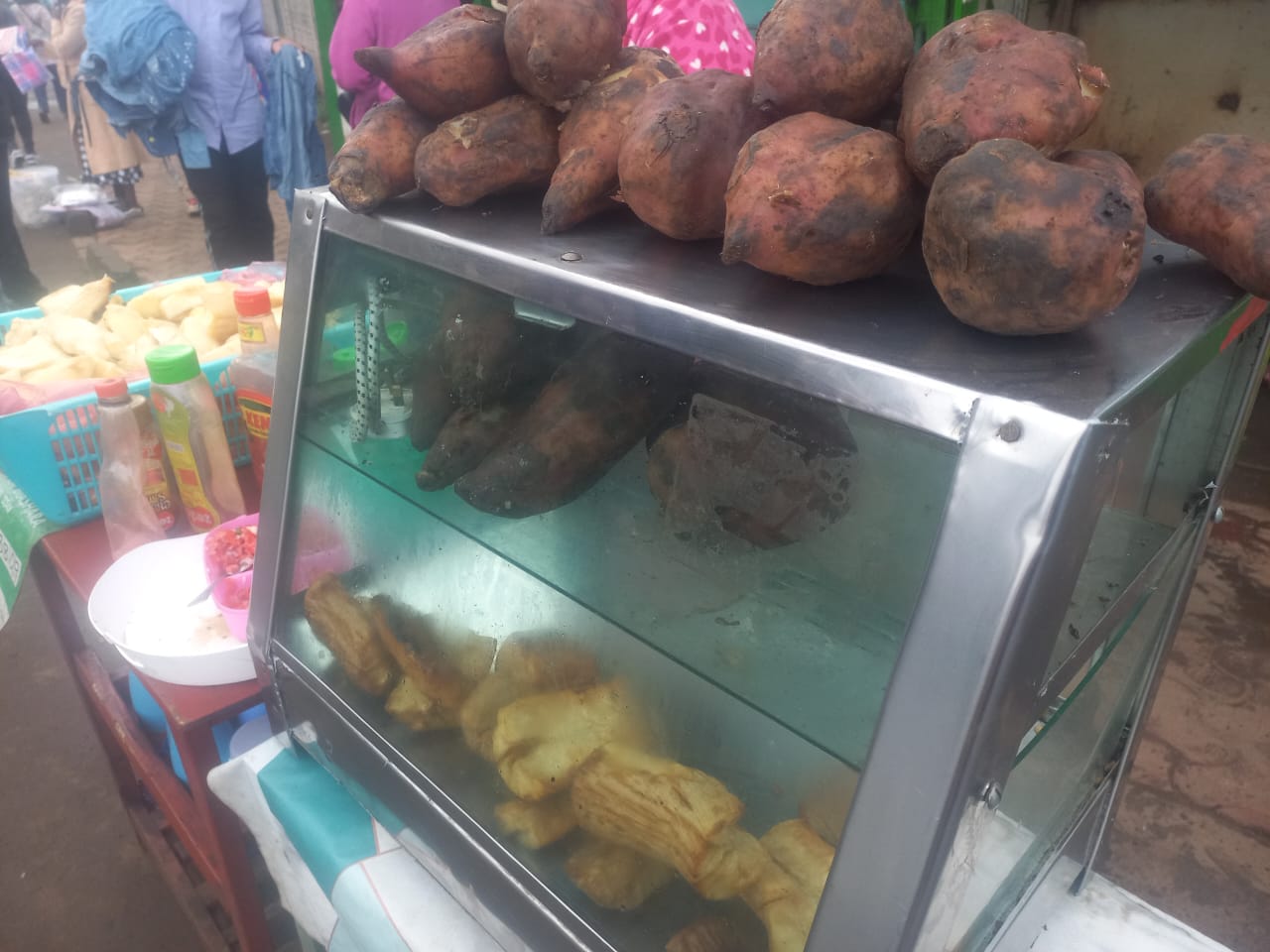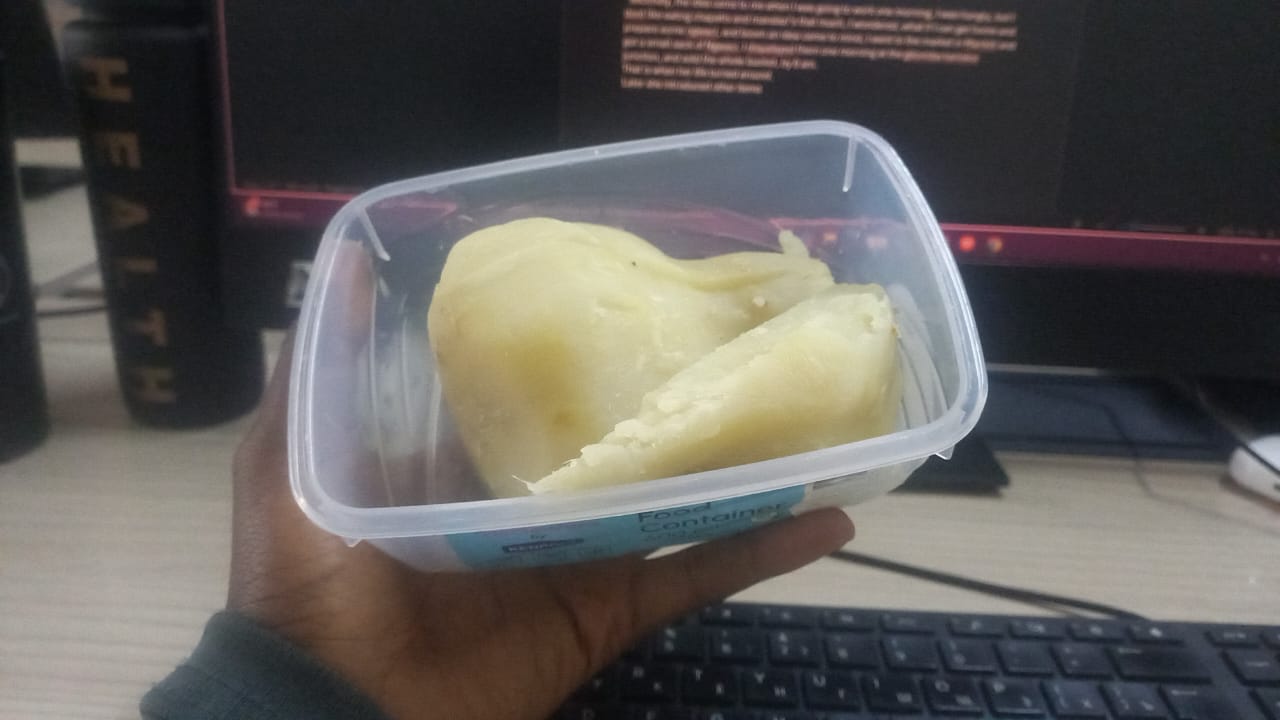Why Nairobi’s morning commuters are opting for healthier street foods

The shift towards ngwaci, nduma, and fruits is not just about taste, it is also about health and affordability.
Ditching mandazis and chapos? Why Nairobi’s morning commuters are choosing healthier street foods
As early as 5 am, Njeri Kabiru is at her usual spot at the Kariokor-Gikomba junction, setting up her small but thriving food stand. Her offerings are nothing like the deep-fried mandazis, smokies and chapatis that once dominated Nairobi’s breakfast scene.
More To Read
- Home living: 10 essential items Kenyans should replace at least once a year
- 14 foods that don’t mix well and why you should avoid them
- Five healthy reasons to add basil to your meals
- As August temperatures drop, here is why you need a sauna or steam bath
- Over one billion Africans unable to afford healthy diet, UN report warns
- How to make irresistible caramel popcorn using a sufuria
Instead, she sells traditional foods, ngwaci (sweet potatoes), nduma (arrowroots), and muhogo (cassava), either boiled or fried and served with a touch of kachumbari and sauce.
Beside her display, Njeri has four thermoses of tea and two of uji (porridge), catering to the commuters who stop by on their way to work, business, or running their own errands.
"Never in a million years did I think I’d be selling these traditional foods, but I took a leap of faith, and it is paying off," she says, watching as customers carefully select their preferred items.
"People used to dismiss these foods as old-fashioned, but now I have customers from all walks of life, office workers, boda boda riders, and even school-going children. It has been a pleasant surprise."
Before this, Njeri was hawking children's shoes in town. However, food was expensive, and carrying packed meals from home was not always practical. The idea to switch to food vending struck her one morning when she craved something different from the usual wheat-based breakfast options.
"I was hungry but didn’t feel like eating chips, chapati or mandazi. That’s when it hit me, what if I prepared some ngwaci instead?" she recalls.
That same day, she bought a small sack of sweet potatoes from Marikiti market on her way home and made the decision to change her business.
"It’s not that the hawking business was bad, but I have always loved to cook. Plus, hawking shoes in the streets of Nairobi is tough, 'Kanjo' harassment, unpredictable weather, and the struggle to find customers. Selling food seemed like a better and more stable option, especially since I am the sole provider for my family."
By 8 am the next day, Njeri had sold every single piece of the bucket full she had carried for the day.
"The customers, mostly the boda boda operators, asked if I could add some tea since they had to look elsewhere to get something to drink with their food," she says.
"I went back home that day and told myself, 'Tomorrow, I will come prepared with tea and porridge.' And that’s how my business grew."
Encouraged by this unexpected success, she added arrowroot and cassava to her menu, eventually introducing fried cassava, which quickly became her best-seller.
She charges from Sh20 to Sh60, not much, but she is happy to cater to people from all walks of life.
“That small profit I get can't be compared to customer loyalty, and for me, that is something I can bank on. That a customer will come today, and tomorrow, she will pass by again.”
 Margaret Wanjiru enjoys her delicious sweet potatoes at work. (Photo: Margaret Wanjiru)
Margaret Wanjiru enjoys her delicious sweet potatoes at work. (Photo: Margaret Wanjiru)
A growing demand for healthier options?
Njeri’s stand has become a popular stop for a diverse clientele, Gikomba and Kariokor traders, matatu operators, and boda boda riders, all looking for an affordable yet filling breakfast.
Kenneth Odhiambo, a boda boda operator, is a loyal customer.
"We are proud of what she is doing, transforming lives in a healthy way, one ngwaci at a time. I have hypertension, so I have to be very careful about what I eat," he says.
"Most street food options are fried and full of oil. But with these, I know I am eating something fresh and nutritious. This comes through for me, especially since I am always out in the cold morning of 4 am. It’s a nice pick-me-up and keeps me full for longer."
Irene, a commuter who works in Eastleigh as an administrator, makes a daily stop at Kariokor just to get her breakfast.
"In Eastleigh, it's mostly chapati and mandazi, and I’m trying to be mindful of my diet after gaining a lot of weight," she explains.
"When you are in an office, you’re sitting all day, and if you keep eating wheat-based food, you start feeling sluggish. Buying here allows me to eat healthily without the hassle of preparing these foods at home. I never thought I would crave sweet potatoes in the morning, but now it has become my go-to meal."
Kevin Muroto, a cart operator, says a good breakfast is essential to power him through the day.
"I’ve tried eating mandazi and chapati, but I feel hungry too quickly. When I have uji, nduma, ngwaci, and a boiled egg, I’m sorted until late afternoon. This has honestly been a game-changer," he says.
"It gives me the energy I need to push through heavy lifting and long walks with my mkokoteni. It’s also cheaper in the long run because I don’t have to keep buying snacks throughout the day."
The rise of fruit vendors and roasted and boiled maize in Nairobi's CBD
Fruits
Njeri is not the only vendor benefiting from this shift in food preferences. Across town in the Nairobi CBD, Martin Wainaina runs a fruit stall that caters to morning and evening commuters.
His neatly packed fruit cups, filled with mangoes, pineapples, bananas, pawpaw, and watermelon, are a hit with office workers looking for a fresh, healthy alternative to fried snacks.
"I started this business one year ago, and I’ve seen more people choosing fruits over wheat-based foods. Some do it for health reasons, others for weight loss, and many just want something light and refreshing in the morning," Martin says.
"There was a time when most people wanted fried sausages or samosas in the morning, but now, you will see people lining up for fruit cups. Even in the evenings, I have customers grabbing a fruit salad before heading home instead of eating junk food."
Others prefer ‘Mahindi choma’ (roasted maize) or it’s boiled version, something they can sprinkle some salt and nibble on their way home after a long day.
The shift towards ngwaci, nduma, and fruits is not just about taste, it is also about health and affordability.
Nutritionist Wincate Wangari from Nanyuki says this transition is beneficial, especially for those who want to maintain steady energy levels throughout the day.
"Sweet potatoes, arrowroots, and cassava are rich in dietary fiber, vitamins, and minerals. They provide a slow release of energy, which helps people with physically demanding jobs avoid energy crashes," she explains.
"Unlike white bread and deep-fried foods, which can spike your blood sugar and leave you feeling tired, these traditional foods keep you energised for hours."
She also highlights the nutritional value of fruits.
"Fruits help with digestion, hydration, and immunity. Unlike refined wheat products, which can cause blood sugar spikes and weight gain, traditional foods and fruits are healthier options," she notes.
Recent studies support this dietary shift. Research shows that refined wheat products lose nearly 75% of their nutrients during processing, leaving consumers with fewer essential vitamins and minerals. Additionally, refined carbohydrates can lead to increased risks of diabetes, obesity, and heart disease.
The economic factor also plays a role. Kenya’s wheat production has been declining due to changing weather patterns and import costs, making wheat-based foods more expensive. In contrast, ngwaci, nduma, and muhogo are locally grown, making them more affordable and accessible.
“Social media is spreading this awareness about healthy eating, and this movement is transforming lives.”
The growing demand for traditional foods and fruits is reshaping Nairobi’s street food culture. What was once seen as “home food” is now a staple on city streets, providing a healthier, more affordable, and accessible option for urban dwellers.
As more Kenyans embrace these nutritious alternatives, they are not only improving their health but also supporting local farmers and vendors who are leading this quiet but powerful food revolution.
Top Stories Today














































